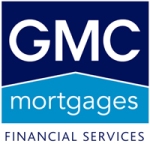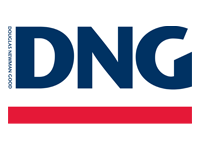Where do I start?
First of all, you need to think about where you want to live and how much space you need. At the same time, you should have a fair idea of how much you can potentially borrow and how much you are prepared to repay (i.e., your monthly repayments). You can do this by getting a mortgage quote (approval in principle) from us. You should also start getting together documents that you will need to support your mortgage application, such as your last P60, bank statements and recent playslips.
Things to consider.
First of all, figure out what you want from the property. If you are getting married and plan to have kids, ideally you should plan ahead and look for property that has adequate space to raise a family. If you are single and do not want to spend too much time maintaining your home, consider an apartment where you can lock up and leave and not worry about cutting the grass when you are away.
The location of your property is key, both for potential resale value and for your own practicality when living there. If you drive, consider if there is adequate or reserved parking. Consider how you will carry out your daily tasks when living there, e.g., is there a reliable public transport link nearby that will serve your work needs (this is also really important if you are considering renting out a room in your property to a tenant).
You also need to carefully consider costs, both upfront and ongoing. Take the time to prepare a budget listing all upfront costs such as stamp duty, legal fees and moving fees. Allow realistic amounts for decoration and furniture. Your ongoing costs will include mortgage repayments, insurance premiums (mortgage protection insurance and home insurance), service charges (these apply in most apartment complexes) and utilities.
What if I want to rent out my property?
If you are purchasing a property to let out, the first thing you need to consider is how your outgoings will relate to your rental income. Sit down and work out how much your rental income will be from the rental. (Generally, you should allow for voids or periods during a typical year when no rent will be received.) Consider also how long it will take you to decorate/repair your property and rent it out initially – sometimes this can take a few months. In your outgoings, be sure to include less obvious costs like letting advertising and block service charges, as well as your mortgage repayments.
As well as preparing a comprehensive “Profit and Loss” for your property, consider practical things like having a lease drawn up, tax implications (see the www.revenue.ie website for information) and ongoing management of the property.
I am going to buy with my partner or some friends, do we need special arrangements?
It is generally very important that you put in place a written agreement with others to cover your joint interest in an asset and to outline what would happen if one party wanted to exit the arrangement. Your solicitor should be able to draft up an agreement to cover many eventualities.
When do I pay stamp duty & how much is it?
Stamp Duty is payable by the purchaser of a property and essentially needs to be made available to your solicitor at the time of purchase (your solicitor will then pay the Revenue Commissioners).
At what stage do I instruct a solicitor?
Good professional advice and guidance is invaluable. We would always recommend that a solicitor’s advice is sought at the earliest opportunity.


